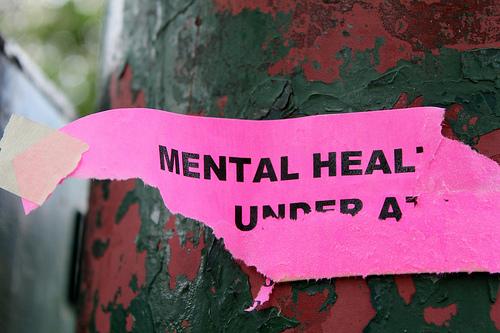After watching the daily news flash before my eyes, I felt sick. Nearly a month after the incident, I am still thinking about her. Madison Holleran, a college freshman and track star at the University of Pennsylvania jumped to her death on Jan. 18. Madison told her parents she had felt overwhelmed by school and had even had suicidal thoughts but insisted on returning to college.
Mental health is not something mentioned often, especially in day-to-day conversation. People tend to shy away from the topic believing there is no “real problem” with today’s youth. However, the amount of college students suffering from a mental illness is astounding. According to the National Alliance on Mental Illness, more than 25 percent of college students have been diagnosed or treated by a professional for a mental health condition within the past year.
Furthermore, colleges across the country have reported large increases in enrollment. At the same time, college counseling centers have also observed an increase in the prevalence and severity of mental health issues experienced by students and an increase in the number of students taking psychotropic medications. College is a difficult transition for many adolescents, which may cause feelings of confusion, depression, anxiety and loneliness.
The pressures of perfecting grades, maintaining a social life, attending clubs, being active and attaining enough sleep prove to be too much for some students. It’s also been reported that suicide is the second leading cause of death for college students. And the number one cause of suicide for college student suicides (and all suicides) is untreated depression.
Along with several other campuses, the need for health facilities at the University of Wisconsin has grown. University Health Services has recently proposed $1.2 million in renovations to include mental health, primary care, violence prevention and communications. They plan to expand the already existing facilities. While mental health awareness is slowly becoming more prominent, it is important to remember that depression, anxiety or bipolar disorders do not define a person. However, it is most important to remember that help is readily available in our community.
Mental health is so often stigmatized that people find it hard to share their problems and experiences with their therapist and more difficult to share them with friends. Speaking from personal experience, I have never once publicly announced my struggles. As a student who has coped with anxiety since the age of 14, it is safe to say that I am close to overcoming it. Although I do have my worrisome moments, I am nowhere near where I was years ago. For those suffering from depression, there is help for you.
In a culture that focuses on perfect ACT scores, March Madness and ridiculous reality television and celebrities, it is easy to see why the youth today are the way they are. Materialistic things have pushed their way to the forefront of media while real issues sit stagnant on the back burner. In today’s society, there are little to no positive connotations associated with mental health; instead individuals fear that they will be labeled “crazy,” or even worse, “psychotic.” It is time to take a step in the right direction because mental health is important. Here’s to not just hoping for change, but to taking a stand and making it happen.
To Madison and any others who have taken their lives: May you rest in peace knowing that you have positively impacted the world although your stay was much too brief. You are missed each and every day.
Allison Ebben ([email protected]) is a freshman majoring in nursing with a certificate in gender and women’s studies.














